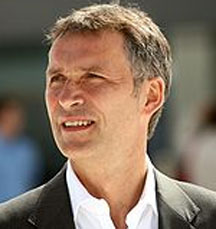OSLO, (Reuters) – Norway, which has led developed nations by investing billions of dollars to slow tropical deforestation, announced plans yesterday to step up its efforts as part of “first aid” to slow climate change.
Prime Minister Jens Stoltenberg, whose country is rich thanks to offshore oil and gas, said new measures to slow global warming were needed now because a new U.N.-led climate deal is due to be agreed only in 2015 and enter into force from 2020.
“In the meantime we must give the climate first aid,” he told a news conference.
“The government will step up its efforts to slow deforestation and work to cut emissions that give the greatest climate effect in the shortest time,” he said. Stoltenberg did not, however, announce fresh investments or targets.

Deforestation, often clearing land for farms, accounts for about 17 percent of greenhouse gas emissions from human sources. Forests, from the Congo to the Amazon, soak up carbon dioxide from the air as they grow and release it when they rot or burn.
Norway has been the most generous nation in giving aid to slow tropical deforestation with annual investments worth $500 million in recent years, funded from its own vast fossil fuel revenues.
It has $1 billion programmes in both Brazil and Indonesia and smaller projects in nations including Guyana and Tanzania.
Stoltenberg said that other fast-acting measures that would qualify as first aid included cuts in industrial emissions of soot and methane, a powerful greenhouse gas, and reductions in subsidies for the use of fossil fuels.
Oil Change International, an environmental group campaigning for a shift towards cleaner energies such as solar or wind power, estimates that fossil fuel subsidies worldwide will reach $775 billion in 2012.
It also estimates that Norway itself handed out almost $700 million in fossil fuel subsidies last year.
U.N.-led talks in Qatar this month ended with a deal to extend the Kyoto Protocol, a weak pact that sets greenhouse gas goals for industrialised nations, until 2020.





